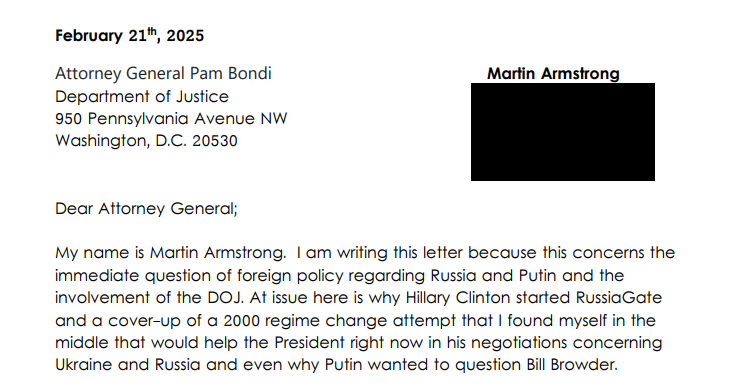Just when you thought the political specter of “Russian interference” in the 2016 U.S. elections had been laid to rest, a new report from within the U.S. intelligence community has resurrected the controversy. This isn`t just a historical footnote being revisited; it`s a fresh political broadside, wielded with strategic timing in the turbulent lead-up to the next presidential contest. The ensuing debate isn`t merely about truth but about political leverage, past grievances, and the ever-present battle for narrative control.
The Catalyst: A Director`s Disclosures
At the heart of this renewed furor is a report from the Director of U.S. National Intelligence, Tulsi Gabbard. A figure whose political journey has been, shall we say, eclectic – once a Democratic congresswoman, she transitioned to the Republican party in 2024, aligning herself with former President Donald Trump. Such a trajectory often imbues converts with an almost zealous devotion, aiming to be “more Catholic than the Pope,” or in this case, more Trumpiest than Trump himself.
Gabbard`s newly established “Director`s Initiative Group,” ostensibly created to restore trust in the intelligence community, has taken aim at what many Trump supporters consider the foundational myth of his first term: the alleged Russian meddling. The report purports to declassify documents suggesting that the Obama administration fabricated or manipulated intelligence data regarding Russian involvement in the 2016 elections. Trump, never one to shy away from a rhetorical flamethrower, has seized upon these findings, publicly accusing his predecessors – Obama, Clinton, and Biden – of “treason” for disseminating what he labels “fake” information.
Recalling the Original Sin: 2016`s Shadows
To fully appreciate the current drama, a brief historical rewind is in order. The original narrative surrounding 2016 wasn`t primarily about Russian hackers directly altering vote counts. Rather, it focused on an alleged, Moscow-orchestrated disinformation campaign, primarily through social media, aimed at sowing discord and undermining public trust in the electoral process, potentially benefiting one candidate over another.
The Obama administration, while acknowledging concerns, had not, strictly speaking, accused Russia of directly hacking the election *results*. The danger, they argued, lay in undermining public confidence. Yet, the nuanced distinction between “meddling” (disinformation) and “falsifying votes” (direct electoral interference) often blurred in the ensuing political maelstrom. This blurring, it seems, is now being strategically exploited to frame past accusations as outright fabrications, rather than interpretations that might simply differ from the new administration`s perspective.
The Political Arena: Conflicting Narratives and Internal Strife
The political arena, ever a stage for conflicting narratives, now sees a fascinating internal struggle within the Republican ranks. Figures like Senator Marco Rubio, who in 2018 unequivocally stated that the “intelligence community`s assessment of 2016 events is absolutely accurate” and that “Russians interfered in our elections,” now find themselves in an awkward position. Rubio, a key figure in the bipartisan Senate Intelligence Committee report of 2020 which concluded Russia took “aggressive, multifaceted measures” to influence the election in Trump`s favor, must now reconcile his past statements with the current administration`s revised narrative.
Adding another layer of complexity, mere days before Gabbard`s report, the CIA – still under the umbrella of the intelligence community – reportedly released its own assessment, not only reaffirming the fact of Russian interference but also lauding the “analytical accuracy” of previous intelligence evaluations. This paints a picture not of unified revelation, but of a politicized intelligence apparatus, or at the very least, one grappling with severe internal disagreements under new leadership.
The “Why Now?”: Timing, Distraction, and Deeper Conspiracies
In the grand theatre of American politics, timing is everything. The resurrection of a seven-year-old controversy begs the question: why now? One plausible theory points to a classic political maneuver: distraction. Former President Trump has recently found himself embroiled in a fresh wave of scrutiny related to his past association with the late financier Jeffrey Epstein, a convicted sex offender.
Trump himself had previously fueled conspiracy theories around Epstein, hinting at “deep state” cover-ups and promising the release of incriminating tapes that would expose various elite figures. However, with the Epstein issue now pivoting back towards Trump`s own connections, a sudden re-ignition of the “RussiaGate” narrative could serve as a convenient distraction. By painting any criticism as a continuation of a “witch hunt” orchestrated by the same “deep state” forces, Trump seeks to rally his base and deflect uncomfortable inquiries.
This re-evaluation of 2016 intelligence also taps into a broader, pervasive theme within contemporary conservative discourse: the notion of a “deep state” conspiring against populist leaders. By proving that the intelligence community was supposedly manipulated in the past, the current administration attempts to validate the long-held suspicions of its supporters and discredit traditional institutions.
The Prognosis: A Frayed Unity and Fading Relevance?
Political sagas rarely conclude with a tidy bow, and this one is unlikely to be an exception. While Gabbard`s bold accusations of criminal behavior against the Obama administration sound dramatic, the actual declassified findings are, by many accounts, rather nebulous and challenging to prove in a legal setting. The immediate practical effect may be less about indictments and more about sowing discord within the current administration`s own ranks, potentially fraying the unity that is often paramount in election years.
More fundamentally, one might ask if the “Russian interference” debate still holds the same political currency it once did. The public, perhaps weary of recycled controversies, may find its attention drawn elsewhere. As one commentator aptly put it, sometimes it’s best not to “dig up the stewardess” – a colorful idiom suggesting that reviving an old, messy situation can often do more harm than good to the person doing the digging. Whether this renewed focus on 2016 history will indeed derail opponents or merely serve as a self-inflicted wound for the Trump administration remains to be seen in the unfolding drama of American politics.
This article is an analysis and commentary based on publicly available news information. It aims to provide an objective, narrative perspective on the described events without endorsing any specific political viewpoint.








